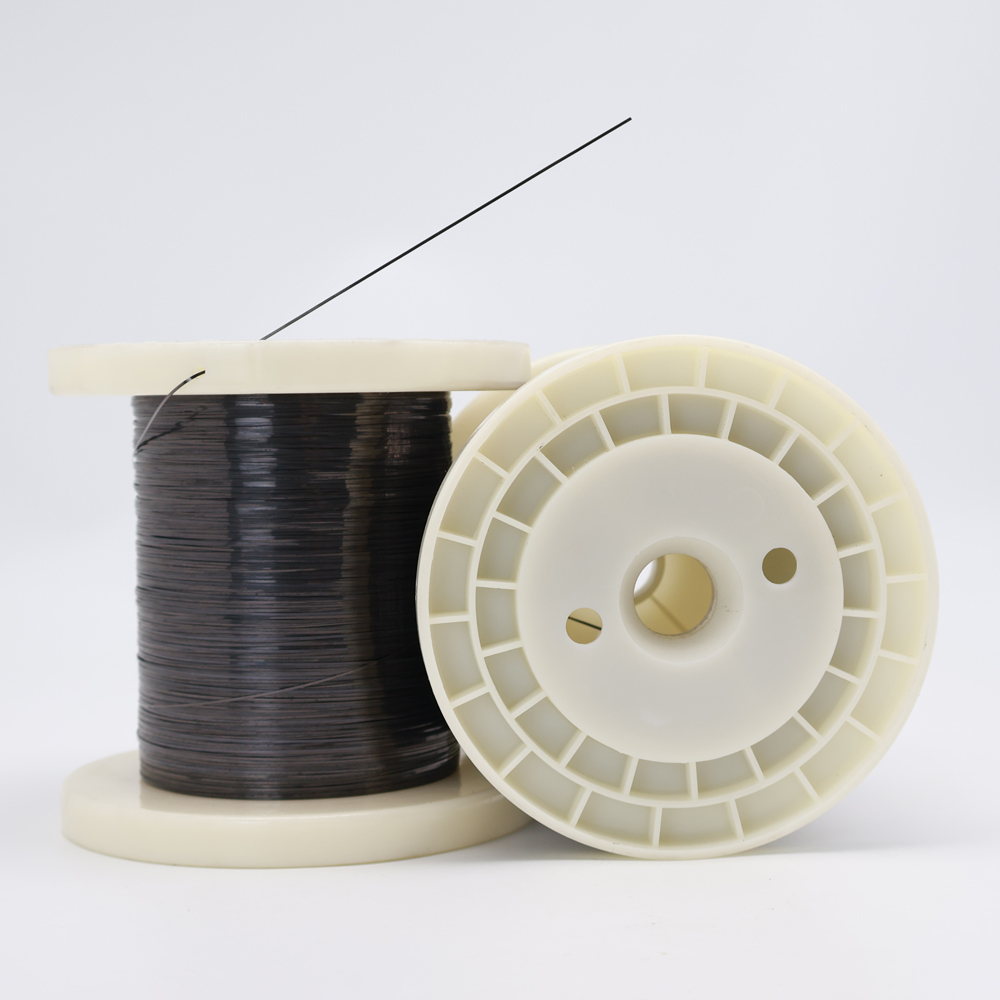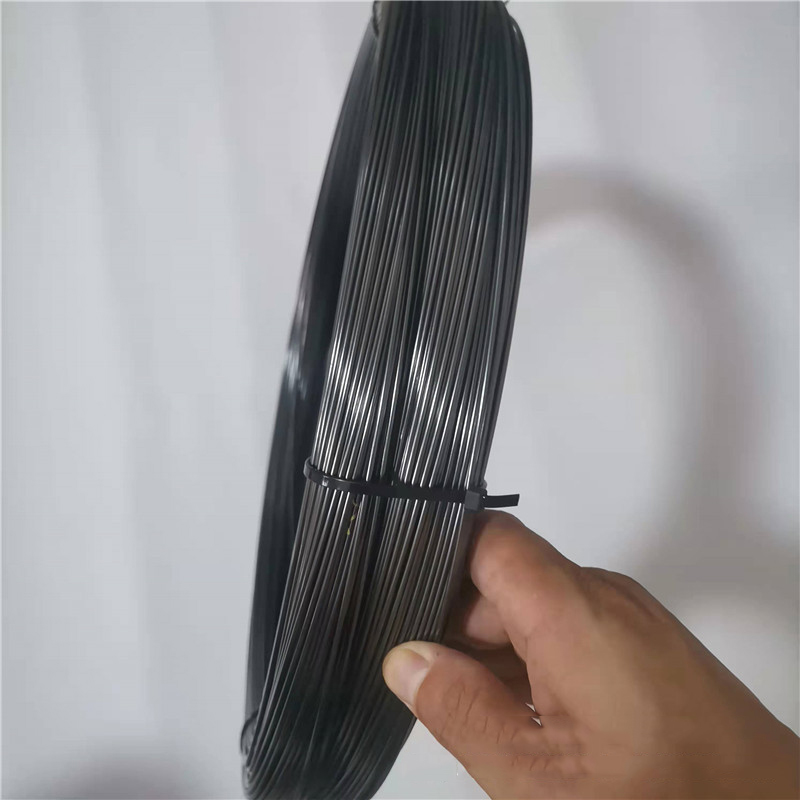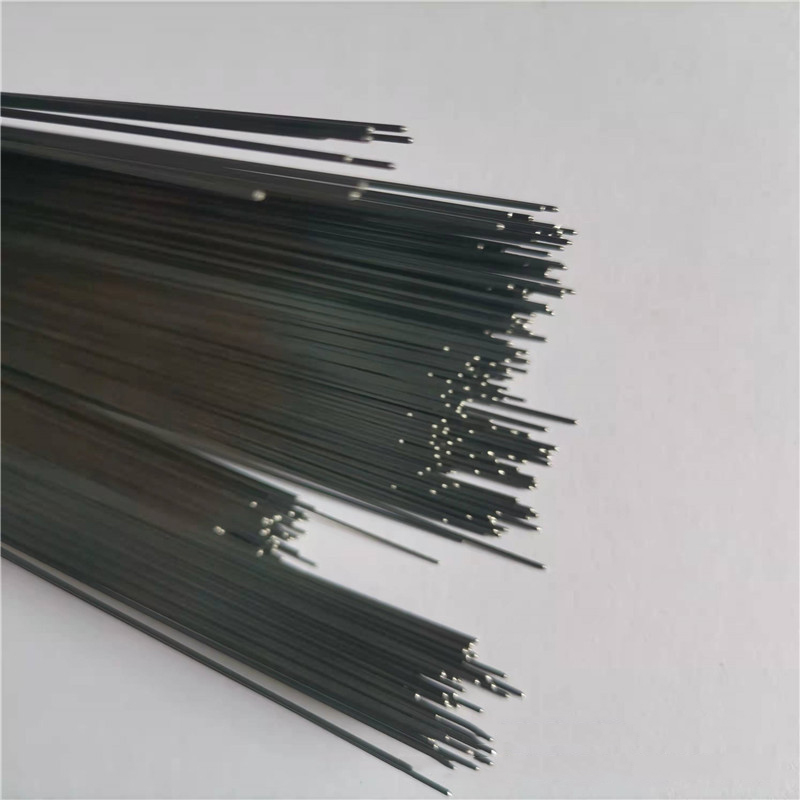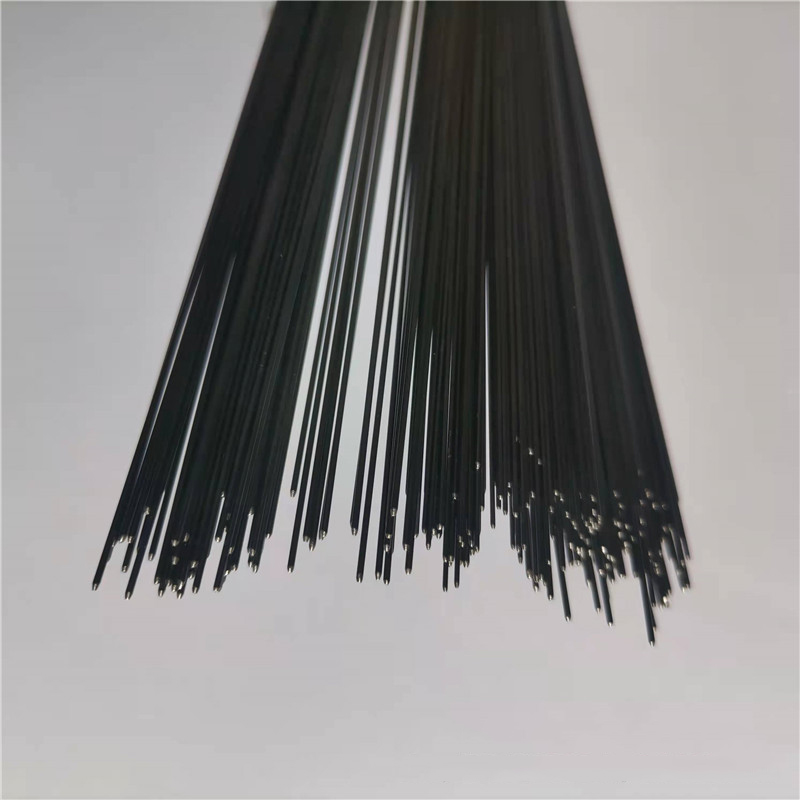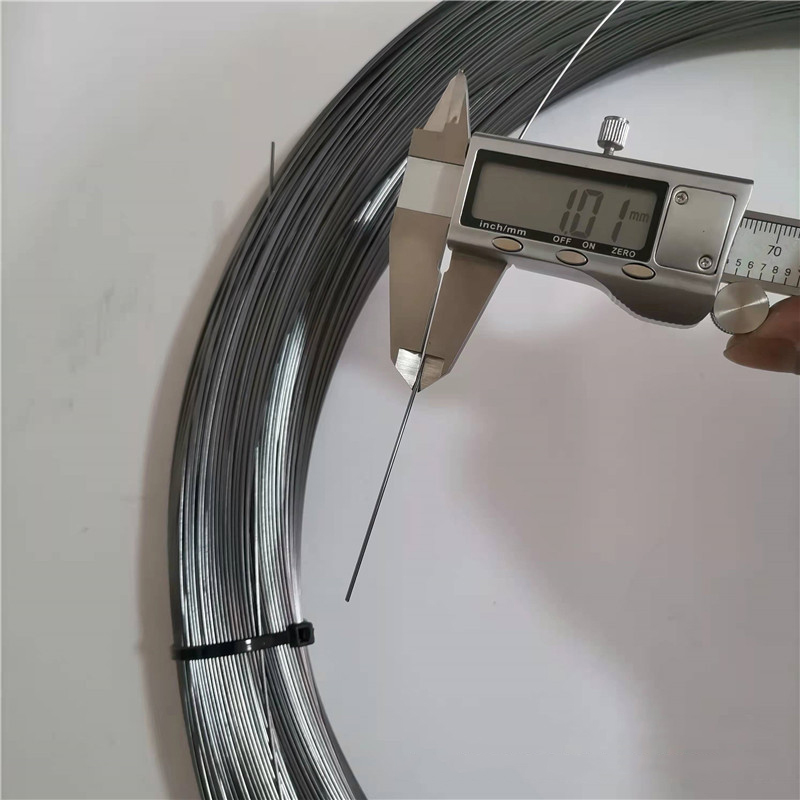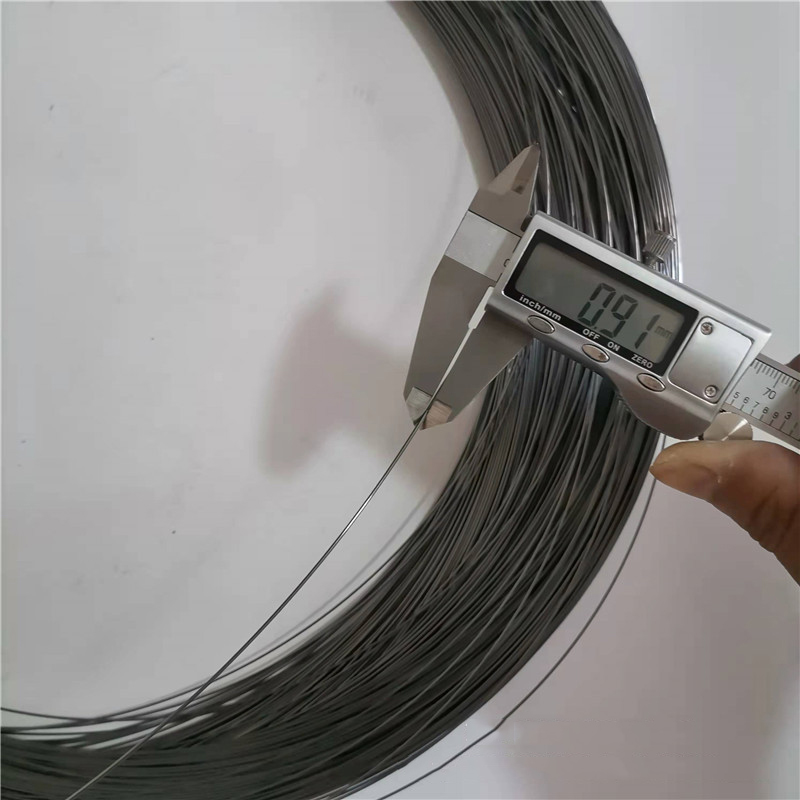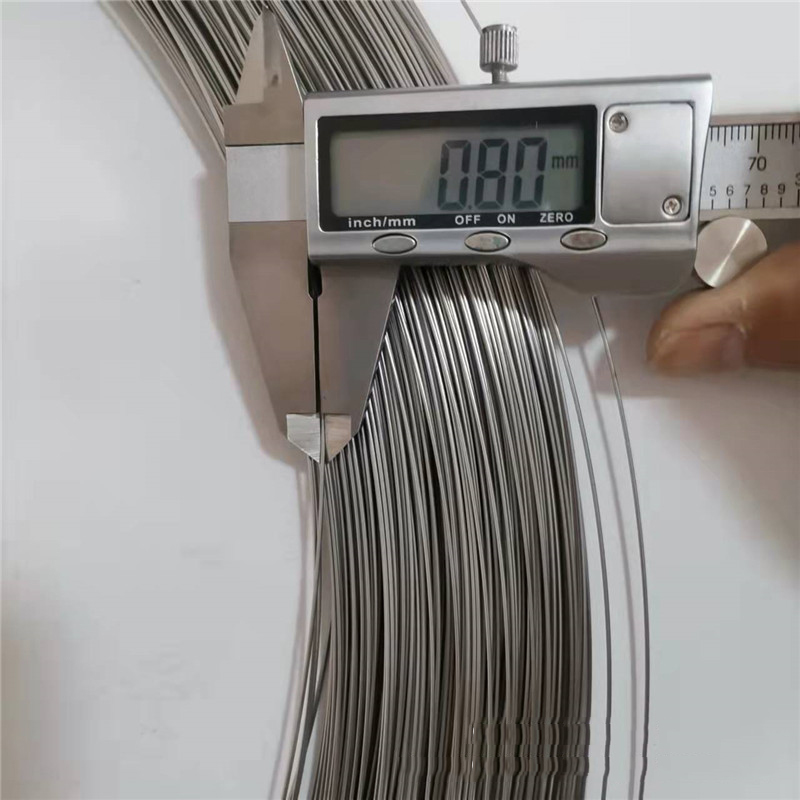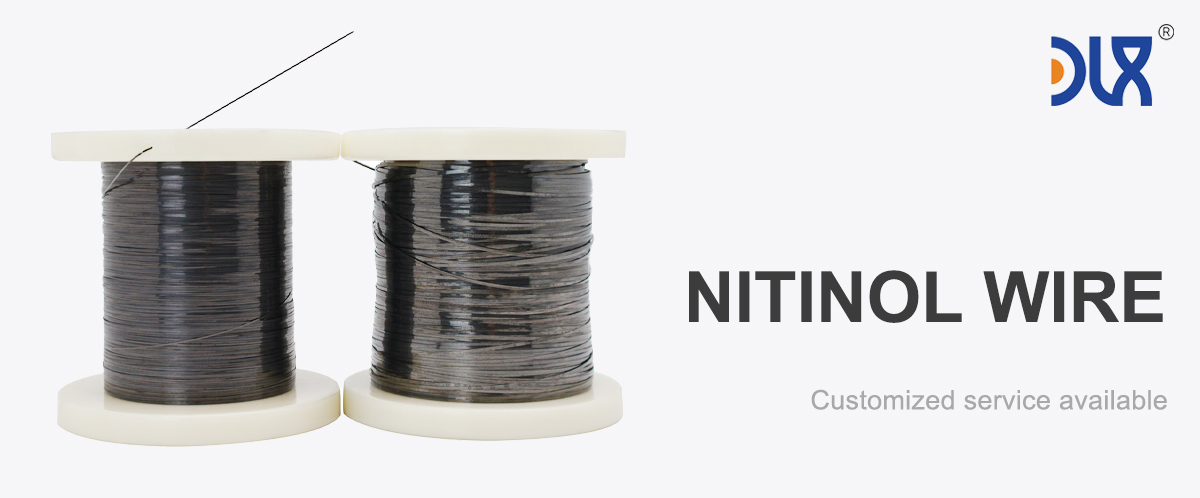
Our superelastic Nitinol Wire is a game-changer for stents and guidewires, making minimally invasive procedures smoother and safer. Nitinol, a nickel-titanium alloy, is famous for its superelasticity—meaning it can bend like crazy and snap back to its original shape without kinking. With a nickel content of 54.5-57.0% and a transformation temperature range of -25°C to 35°C, our wire meets ASTM F2063 standards, ensuring top-notch biocompatibility and performance. Whether it’s deploying a stent in a narrow artery or guiding a wire through complex vessels, our Nitinol wire delivers precision you can trust.
What makes our wire stand out? It’s built for flexibility and reliability. With tensile strength of 1000-1400 MPa and excellent fatigue life, it’s perfect for medical devices that need to navigate tricky anatomy. We’ve optimized it for vascular stents and guidewires, where superelasticity is critical for success. Our rigorous quality control ensures every batch is corrosion-resistant and biocompatible, with a smooth surface finish to minimize complications. When it comes to stents and guidewires, our Nitinol wire is the go-to choice for surgeons and manufacturers.
For more details, pls directly contact us.
Our Nitinol wire is a carefully crafted blend of nickel (54.5-57.0%) and titanium, delivering the superelasticity and shape memory that make it ideal for stents and guidewires. The transformation temperature range (-25°C to 35°C) is tuned for body-temperature performance, ensuring the wire flexes and recovers perfectly during procedures. Compared to stainless steel or pure titanium, our Nitinol is a cut above. Stainless steel is strong but prone to kinking in tight spaces, while pure titanium lacks the flexibility and superelasticity needed for dynamic devices.
Our wire’s corrosion resistance is exceptional, standing up to bodily fluids without degrading. Its high fatigue life ensures it can handle constant stress, like a stent expanding with every heartbeat. With an elongation range of 10-20%, our wire balances flexibility and strength, making it perfect for applications like guidewires navigating tortuous vessels. We also offer customization options, like adjusting transformation temperatures or surface properties, to meet specific device needs, all while maintaining ASTM F2063 compliance for medical safety.
Nickel- Titanium Wire Grades and Composition Comparison
Grade | Chemical Composition (Main Elements, Balance Ti) | Transformation Temperature (Af) Range | Tensile Strength (MPa) | Elongation (%) | Main Applications |
|---|---|---|---|---|---|
NiTi-01M (Superelastic) | Ni: 54.5-57.0%, Ti: Balance | -25~35°C | 800-1100 | 10-20 | Medical orthodontic wires, root canal files, vascular stents |
NiTi-02 | Ni: 55.0-56.5%, Ti: Balance | 0~80°C | 700-1000 | 8-15 | Shape memory alloys, temperature control devices |
CuNiTi (Ternary Alloy) | Ni: 54.0-56.0%, Cu: 0.5-2.0%, Ti: Balance | -25~35°C | 850-1200 | 12-25 | Medical guidewires, sutures, staplers |
NiTiFe | Ni: 54.5-57.0%, Fe: 0.1-2.0%, Ti: Balance | -50~20°C | 900-1300 | 10-18 | Low-temperature applications, aerospace components |
NiTiCr | Ni: 54.5-57.0%, Cr: 0.1-0.5%, Ti: Balance | -20~40°C | 1000-1400 | 8-15 | High-strength medical devices, bone fixation devices |
For more details, pls directly contact us.
The Nitinol wire market is booming, especially for stents and guidewires. In 2025, the global medical device market is growing at a CAGR of 5.9%, with Nitinol leading the way for its flexibility and precision. The rise of minimally invasive procedures is a big driver—patients want faster recoveries, and surgeons need devices that can handle complex anatomy with ease. Our superelastic Nitinol wire is tailor-made for this, excelling in applications like vascular stents and guidewires where accuracy is everything.
Beyond medical, industries like robotics and aerospace are tapping into Nitinol’s potential, but healthcare is the star of the show. Trends show a focus on precision and durability, with manufacturers optimizing alloys for specific endovascular procedures. The growth of cardiovascular and neurological interventions is boosting demand for Nitinol-based devices. Challenges like high production costs and strict regulations (like ASTM F2063) keep the market competitive, but our advanced manufacturing and quality assurance make us a leader in delivering reliable Nitinol wire.
Applications of Our Superelastic Nitinol Wire
Our Nitinol wire is a powerhouse for stents and guidewires, shining in a range of medical applications:
Vascular Stents: Its superelasticity allows stents to collapse for delivery and expand precisely in arteries, reducing trauma and ensuring durability.
Cardiovascular Guidewires: The wire’s flexibility ensures kink-free navigation through complex coronary arteries, improving procedure safety.
Neurological Guidewires: Its superelasticity supports precise navigation in delicate brain vessels, minimizing risks.
Peripheral Stents: The wire’s durability ensures reliable performance in stents for peripheral arteries, handling constant stress.
Diagnostic Catheters: Its flexibility enables catheters to maneuver through tight spaces, enhancing diagnostic accuracy.
These applications highlight why our Nitinol wire is a top choice for medical devices that demand precision and flexibility.
Parameter | Our Nitinol Wire (ASTM F2063) | Stainless Steel | Pure Titanium |
|---|---|---|---|
Nickel Content | 54.5-57.0% | 0% | 0% |
Transformation Temp (Af) | -25~35°C | N/A | N/A |
Tensile Strength (MPa) | 1000-1400 | 500-1000 | 240-550 |
Elongation (%) | 10-20 | 15-40 | 20-30 |
Superelasticity | Superior | No | No |
Shape Memory | Yes | No | No |
Corrosion Resistance | Excellent | Good | Excellent |
Biocompatibility | High (ASTM F2063 compliant) | Moderate | High |
Applications | Stents, guidewires | Surgical tools | Implants |
When it comes to superelastic Nitinol wire for stents and guidewires, we’re setting the standard. Our wire is crafted with precision, from tightly controlled nickel content to a smooth surface finish that minimizes complications. We invest heavily in R&D to optimize superelasticity, tensile strength, and biocompatibility, ensuring our wire meets the demands of endovascular applications. While others may produce Nitinol, we go further with enhanced fatigue testing and corrosion resistance, guaranteeing performance in the body’s toughest conditions.
Our supply chain is a major strength. We’ve streamlined production to deliver Nitinol wire quickly, whether it’s a small batch for prototyping or a large order for global manufacturers. Our team works closely with clients to customize wire specs, like adjusting transformation temperatures for specific stents or guidewires. With state-of-the-art manufacturing, we achieve tighter tolerances than industry standards, reducing risks and ensuring reliability. This combination of innovation, speed, and quality makes us the go-to choice for medical device manufacturers.
Why Choose Our Superelastic Nitinol Wire?
Our Nitinol wire is built for precision and trust. Here’s why it’s the best pick for stents and guidewires:
Unmatched Flexibility: Our wire’s superelasticity ensures kink-free performance in stents and guidewires.
Top-Tier Quality: Every batch meets ASTM F2063 standards, with rigorous testing for biocompatibility and corrosion resistance.
Customizable: We tailor transformation temperatures and tensile strength to fit your specific device needs.
Fast Delivery: Our optimized supply chain delivers high-quality Nitinol wire on time, every time.
Expert Support: Our material scientists and engineers are here to collaborate, ensuring your devices exceed expectations.
Future Trends and Our Commitment
The Nitinol wire market is evolving, and we’re leading the way. Advances in nanotechnology could enhance our wire’s properties, like improving radiopacity for better imaging during procedures. The rise of endovascular therapies and robotic-assisted surgeries is driving demand for precise, reliable materials, and our Nitinol wire is ready to meet those needs. We’re investing in next-gen manufacturing to stay ahead, exploring ways to optimize performance while keeping costs competitive.
Sustainability is a priority too. We’re reducing our environmental footprint through energy-efficient production and Nitinol recycling programs. As healthcare demands greener solutions and regulations tighten, we’re committed to delivering eco-friendly, high-performance materials. Our goal is to keep pushing the limits of what Nitinol can do, ensuring our wire remains the top choice for stent and guidewire innovation.
Conclusion
Our superelastic Nitinol wire is transforming stents and guidewires, delivering unmatched flexibility and precision for minimally invasive procedures. Its superelasticity, shape memory, and durability make it the ideal choice for endovascular applications. With a booming market and trends favoring precision solutions, our wire is built for the future. By choosing us, you’re getting more than a product—you’re partnering with a company dedicated to innovation, quality, and your success. Let’s create medical devices that save lives together.
For more details, pls directly contact us.
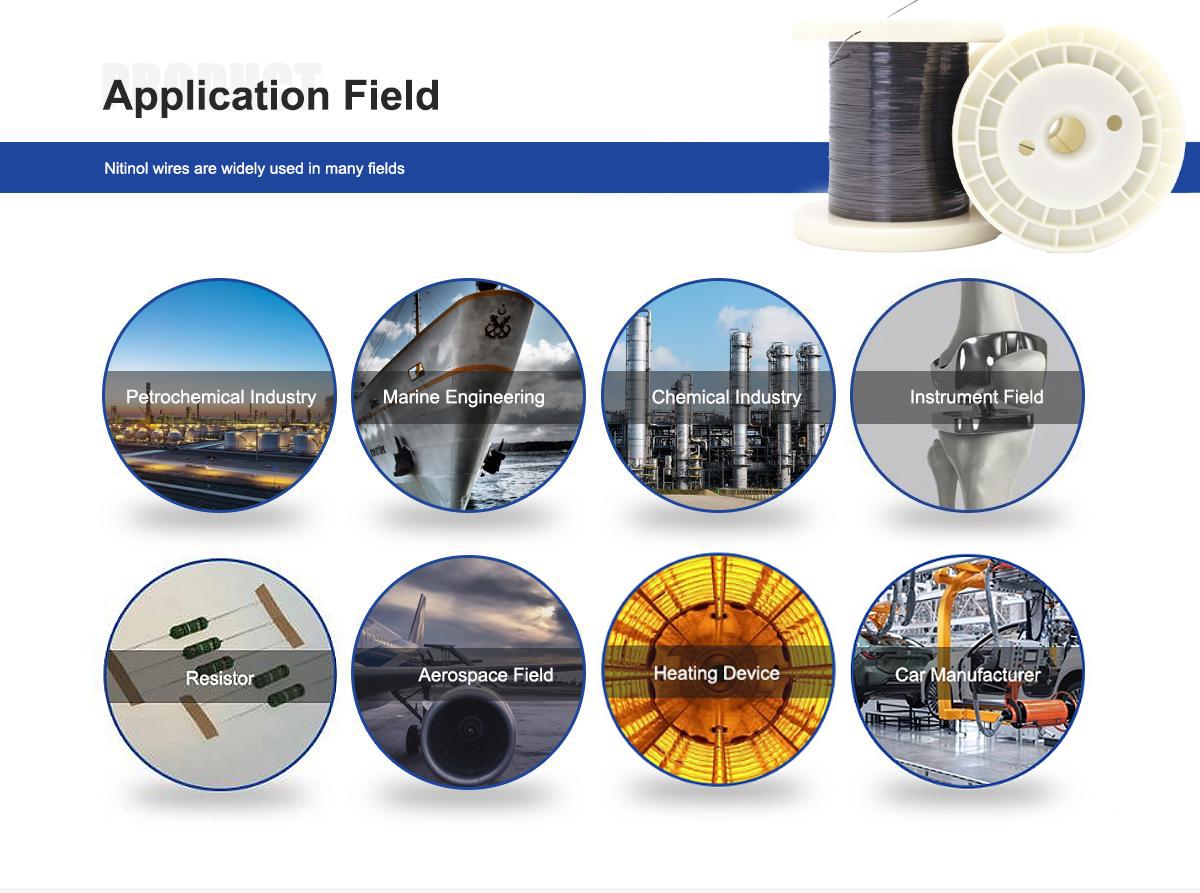
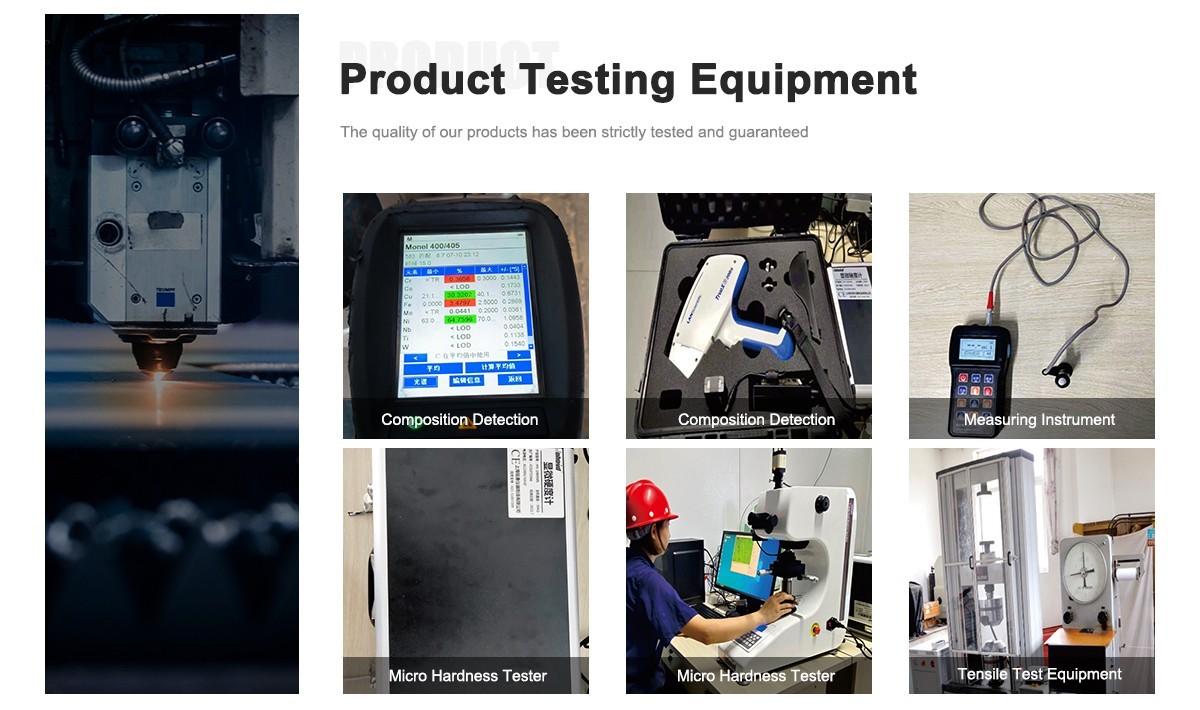
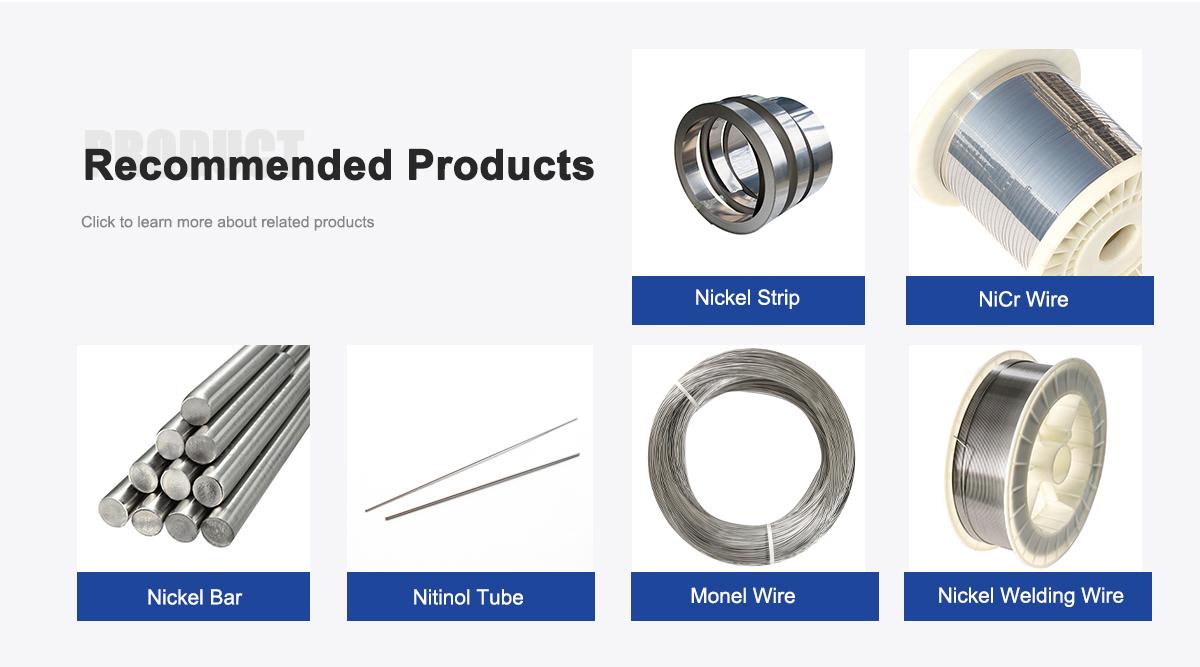
About Us:
Our 12,000㎡ factory is equipped with complete capabilities for research, production, testing, and packaging. We strictly adhere to ISO 9001 standards in our production processes, with an annual output of 1,200 tons. This ensures that we meet both quantity and quality demands. Furthermore, all products undergo rigorous simulated environment testing including high temperature, high pressure, and corrosion tests before being dispatched, ensuring they meet customer specifications.
For all our clients, we offer timely and multilingual after-sales support and technical consulting, helping you resolve any issues swiftly and efficiently.
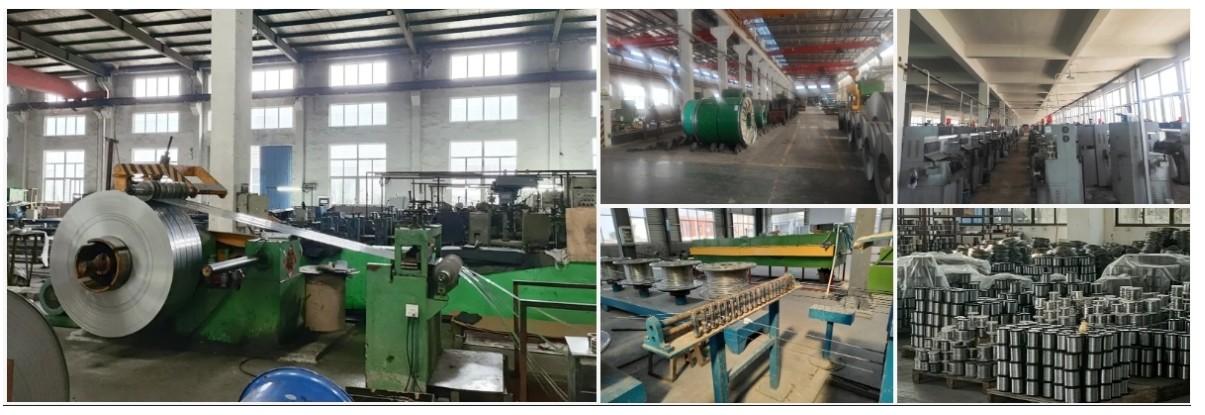
Client Visits
Building Stronger Partnerships

We support all kinds of testing:
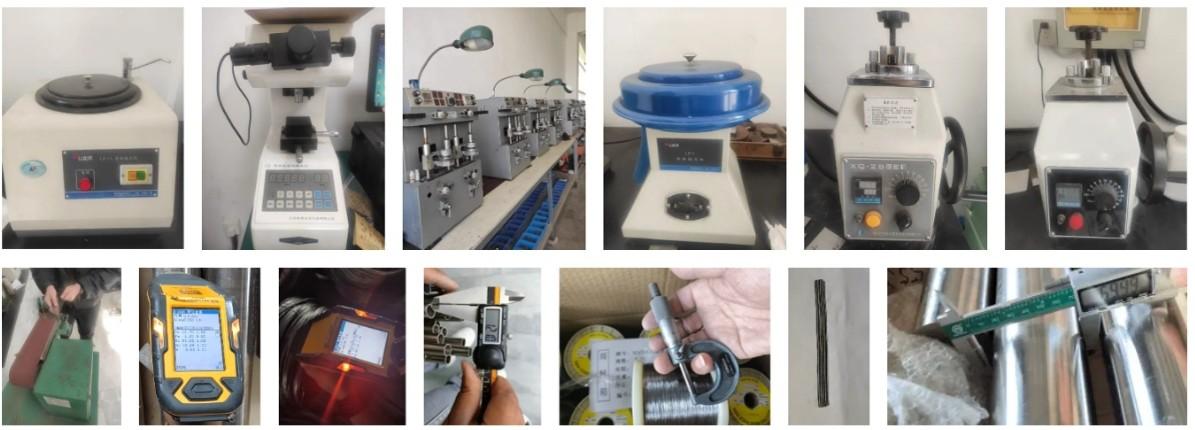

FAQs:
What is superelastic Nitinol wire for stents and guidewires?
Our superelastic Nitinol wire is a nickel-titanium alloy designed for stents and guidewires, offering exceptional flexibility and superelasticity for medical applications.How does superelasticity benefit stents and guidewires?
It allows our wire to bend without kinking and recover its shape, enabling precise deployment in stents and navigation in guidewires.What are the main applications of our Nitinol wire?
It’s used in vascular stents, guidewires for cardiovascular and neurological procedures, and other minimally invasive devices.Is our Nitinol wire safe for medical use?
Yes, it meets ASTM F2063 standards, ensuring biocompatibility and safety for medical applications.How does our Nitinol wire compare to other materials?
Unlike stainless steel or titanium, our Nitinol offers superior superelasticity and shape memory, ideal for stents and guidewires.Which industries use our superelastic Nitinol wire?
Primarily medical for stents and guidewires, but also robotics and aerospace for flexible components.What are the market trends for Nitinol wire in medical devices?
Growing demand for minimally invasive procedures, advancements in alloy flexibility, and increased use in endovascular therapies drive market growth.How does our Nitinol wire perform in complex procedures?
Its superelasticity ensures kink-free performance and precise navigation, perfect for stents and guidewires in delicate procedures.

